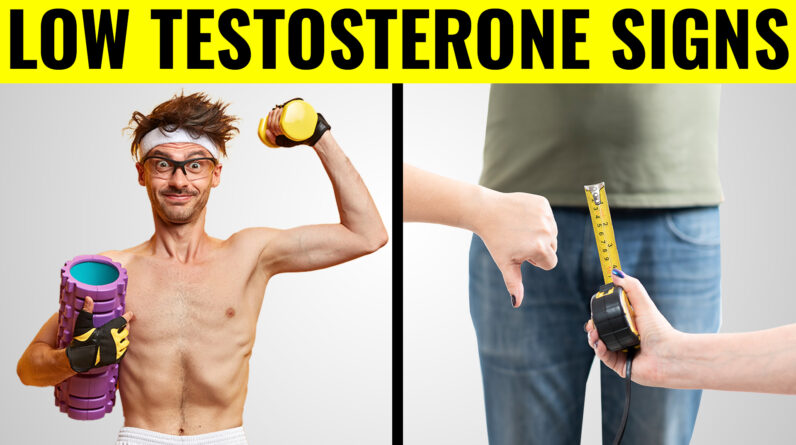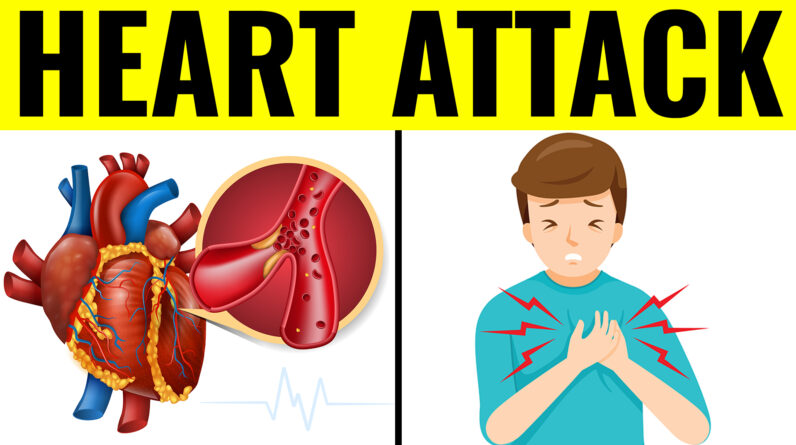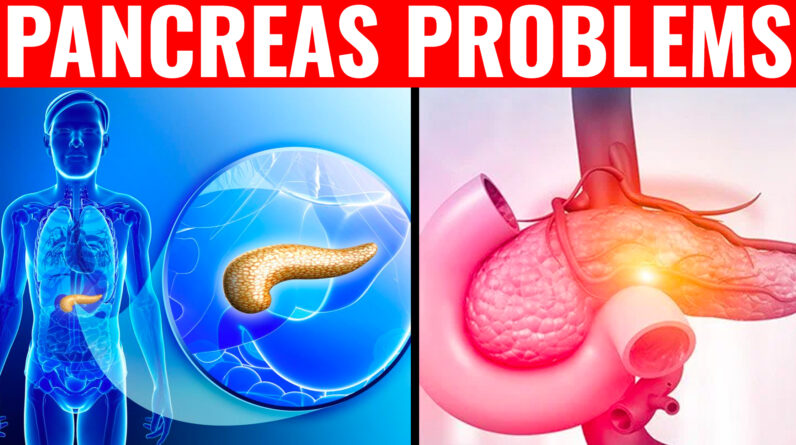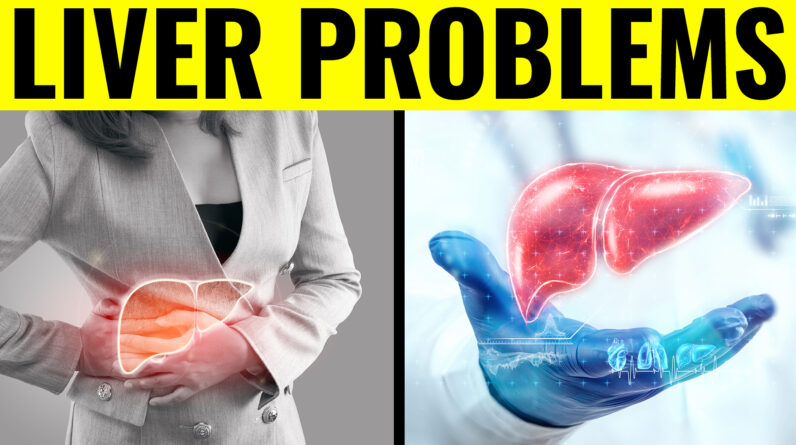
Testosterone is one of the hormones that is responsible for the way a man looks and sexually develops. The hormone is typically produced in the testicles and its functions include stimulating sperm production, stimulating a man’s sex drive, and helping to build muscle and bone mass.
That said, testosterone is not only produced by men; women also have testosterone, however, in a smaller amount. And the functions that testosterone works in the male body are practically the same as they work in the female body, excluding some specific functions like sperm production.
As a result, some of the signs of low testosterone will be similar for both genders, while the others will be specific to each gender. Now, let’s get on with it:
1. Reduced Sex Drive
It is pretty normal for sex drive to decline with age, even though not all men will experience this. However, even if you are aging, there is a difference between a decline and a drop. The decline is meant to happen more gradually while the drop is more drastic.
So, if you recently experienced a drop in your desire for sex, whether or not you are aging, it could be because your testosterone level has dropped. This is because testosterone plays a very important role in men’s libido; if there isn’t enough of it, there won’t be enough desire for sex.
I should mention here that low testosterone levels could also reduce a woman’s sex drive. Yup, it isn’t always the progesterone.
2. Difficulty Getting and Maintaining an Erection
In addition to making men want to have sex basically, testosterone also helps men to achieve and maintain an erection. So, with low testosterone levels, some men might find it difficult to get and/or maintain an erection, or might find themselves getting spontaneous erection.
However, because testosterone levels are not the only factor responsible for erections, research is still inconclusive as to whether or not testosterone replacement would solve the issue of erectile dysfunction.
3. Reduced Semen Production
The semen is the milky fluid that makes up the majority of what comes out when a man ejaculates. This semen is what helps the sperm swim towards the egg or in whatever else direction, and testosterone plays a significant role in its production.
So, if testosterone levels are low, it could affect the production of semen, leading to reduced semen levels and probably also fertility issues.
4. Reduced Muscle Mass
As was mentioned at the beginning of this article, testosterone plays a part in the development of muscle mass for both men and women. So, a drop in testosterone levels would cause a reduction in muscle mass. This drop could also make it difficult for one to put on muscles, regardless of how hard one tries.
However, research has shown that reduced muscle mass caused by low testosterone is not the same as weakened muscles. That is, the individual would have the same function and strength in their muscles that the new mass allows.
5. Reduced Bone Mass
Low testosterone levels would also reduce bone mass in both males and females because testosterone plays a role in the production of bone tissue and helps the bones to maintain their volume. This reduction in bone mass can make the person more susceptible to fractures.
6. Increased Body Fat
Low levels of testosterone can make it difficult for one to lose weight, especially men. In fact, it can cause significant increase in weight even without changes to one’s diet and/or level of physical activity. Some men might develop enlarged breast tissue, especially if the testosterone level is low enough to be rivaled or overshadowed by the estrogen.
7. Smaller Testicles and Penis
In addition to the many other things that testosterone helps with, it also helps with the development of a man’s sexual reproductive organs, including the penis and the testicles.
As a result, low levels of the hormone could very well result in smaller than average penis and testicles. However, smaller than average testicles and penis might not always be a result of low testosterone levels.
For some reason, men that have low testosterone levels typically find it difficult to fall or stay asleep. Causation is yet to be established, that is, research has not really shown how low testosterone causes difficulty sleeping, but what research has shown is that most men with low levels of testosterone also have sleep apnea.
9. Fatigue
This is another sign that research has not given a why for. But it has been found that most people who have low testosterone levels find themselves getting tired quite easily, and also find it difficult to work up the enthusiasm to work out or do any kind of rigorous exercise.
10. Hair Loss
Hair loss is a very common part of aging, but it could also be a sign of low testosterone levels in both men and women. And this hair loss could happen anywhere on the body where hair grows.
The reason hair loss is associated with low testosterone levels is because, once again, testosterone plays a role in hair production.
11. Mood Swings
People with low testosterone levels have also been known to struggle with their mood. Some have been known to experience episodes of depression, irritability, and a lack of focus.
12. Memory Impairment
As you probably already know, people tend to gradually lose their memory and ability to remember as they age. And this is the same with testosterone levels.
It is for this reason that researchers are theorizing that there might be a connection between low testosterone levels and memory decline in men. More research still needs to be done in this area, though, to determine causation, not just relationship.
13. Irregular Menstrual Cycles
If a woman has low testosterone levels, it means that her hormones are imbalanced. And an imbalance in hormones usually leads to irregularity in menstrual cycles, with some women getting shorter than normal cycles and others getting longer.
14. Vagina Dryness
And finally, just like testosterone helps men to get and maintain an erection, it also helps provide lubrication for the vagina. Now, generally, vagina dryness is common before and after menopause, but it could also happen way before then. Also, most times, vagina dryness is a result of low estrogen levels, but low testosterone levels could also be the culprit.
Now, from all that has been said so far, you have to agree with me that testosterone is good for more than just sex. Your testosterone levels affect almost every aspect of your life, both as a man and as a woman. So, it is important that you pay attention to these signs and act on them immediately.
By “act on them”, I mean you should see a doctor, of course. After asking you a couple of questions and probably also running a couple of tests, your doctor will help determine whether the symptoms you are experiencing are due to low levels of testosterone or something else.
If they are a result of low levels of testosterone, your best bet of treatment is Testosterone Replacement Therapy (TRT). This can come in different forms, including:
- Skin patches
- Gels
- Tablets that dissolve in the mouth
- Injections
- And surgically implanted pellets that release the hormone.
You and your doctor will have to agree on the method that is best for you. In addition to Testosterone Replacement Therapy, getting more physically active and maintaining a healthy weight could also help to boost testosterone levels.
Maintaining a healthy lifestyle and eating right, making sure to avoid saturated fat as much as possible could also help boost testosterone levels, but they are far from being the only thing. Nutrients such as zinc, omega-3 fatty acids, and antioxidant vitamins help with testosterone production, though.
Finally, who exactly is at risk of developing low testosterone levels? Well, typically, testosterone reduces with age, but there are a number of other factors that can predispose one to low testosterone levels aside from age and they include:
- Birth defect. Yup! Some people are born with conditions that cause testosterone deficiency, including Klinefelter syndrome and Noonan syndrome.
- Obesity
- Infections
- Autoimmune disease
- Pituitary gland disease
- Chemo or radiation
- Damage to testicles
- Having the testicles removed due to cancer
- Medications like narcotic pain meds and antidepressants
- High blood pressure, High cholesterol, High blood sugar, and the likes.
If any of these factors apply to you, speak with your doctor to discuss your options.







